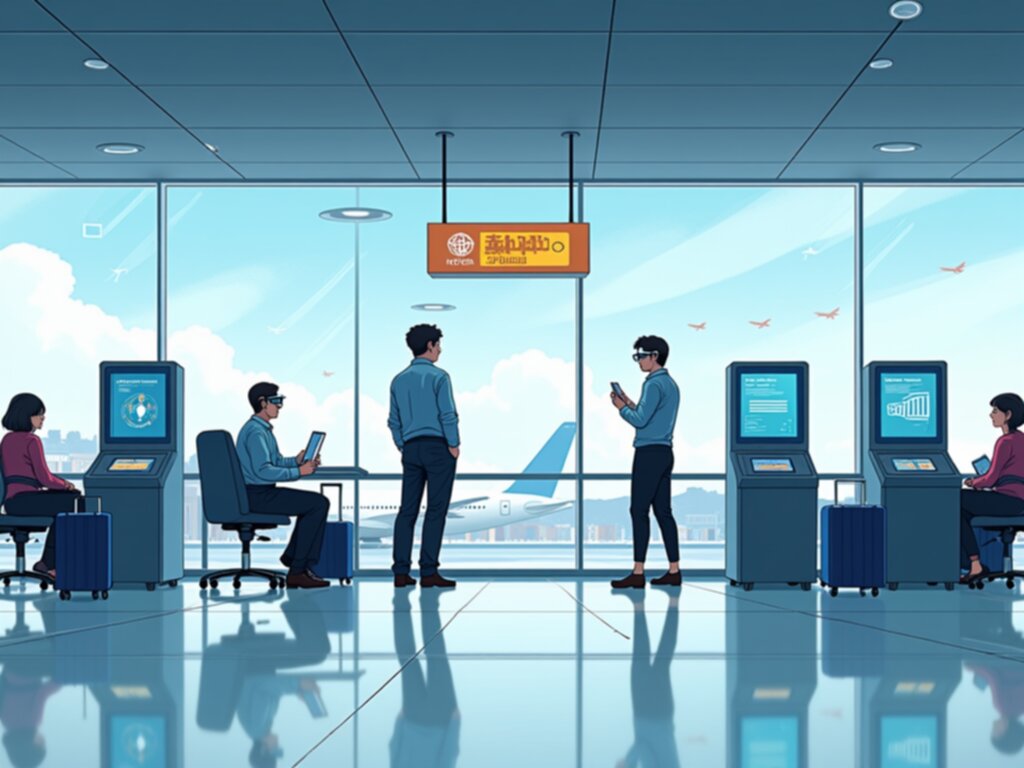EU vs US Airline Hotel Policies A 2024 Guide to Overnight Stay Rights After Flight Cancellations

The seemingly simple act of booking a flight often hides a labyrinth of passenger rights, particularly when the unexpected happens and an overnight stay becomes necessary due to a cancellation. As someone who spends a good deal of time tracing regulatory frameworks, I find the transatlantic divergence in mandated passenger care during these disruptions quite striking. We are talking about basic human needs here: a safe place to sleep and sustenance when an airline strands you far from your intended destination.
It’s easy to assume that major international carriers operate under a unified standard of duty of care, but that assumption, I’ve found, quickly collapses under scrutiny. The governing bodies on either side of the Atlantic have taken distinctly different philosophical paths regarding when an airline’s obligation begins, how long it lasts, and what constitutes an acceptable accommodation. Let's break down the practical reality for a traveler facing an inconvenient overnight layover, specifically comparing the rulesets currently active in the European Union versus the United States as we move through this period.
The European Union’s framework, primarily anchored by Regulation EC 261/2004, establishes a fairly robust baseline for assistance when flights are canceled, regardless of the operating carrier, provided the flight originates within the EU or arrives from a non-EU country on an EU carrier. If a delay or cancellation necessitates an overnight stay, the airline is generally required to provide hotel accommodation, meals, and refreshments in reasonable relation to the waiting time. This obligation kicks in relatively quickly once the delay threshold is met, and crucially, the regulation explicitly covers the cost of transport between the airport and the hotel. I’ve seen instances where airlines initially tried to push passengers toward paying upfront, but the regulation clearly states the cost should be borne by the carrier, often via vouchers or direct booking arrangements. Furthermore, the interpretation of "reasonable" in the EU often leans toward ensuring the traveler isn't left sleeping in the terminal, even if the delay is relatively short but spans a typical sleeping period. It’s a proactive stance, placing the burden of immediate logistical support squarely on the carrier’s shoulders.
Shifting focus across the pond, the regulatory environment in the United States is markedly different, relying more on the individual carrier’s “Contract of Carriage” than on a universal, prescriptive federal mandate comparable to the EU’s system. While many major US carriers voluntarily offer hotel accommodation for controllable delays—meaning things within their operational purview, like mechanical issues—there is no blanket federal law compelling them to provide lodging for weather-related disruptions or air traffic control stoppages. This creates a significant asymmetry in passenger expectation; a flight canceled out of Frankfurt is treated differently than one canceled out of Chicago for similar reasons. When US carriers *do* offer hotels, the terms can vary wildly; sometimes they cover ground transport, sometimes they do not, and the quality of accommodation can sometimes seem less than generous, depending on the carrier's internal cost-saving metrics. Reflecting on this, the US system leans heavily on market forces and existing customer service agreements, rather than a legislated floor of care for overnight disruptions. This distinction means that understanding *which* airline you are flying, rather than simply *where* you are flying from, becomes the primary determinant of your rights in the American context.
More Posts from aiflightrefunds.com:
- →Recent Changes in Baggage Delay Compensation What Travelers Need to Know in 2024
- →JFK Winter Storm Cancellations How to Navigate Refunds and Rebooking Options
- →American Airlines 2024 Standby Policy What Happens in the First 2 Hours After Missing Your Flight
- →7 Most Accurate Real-Time Flight Tracking Tools That Help Predict Flight Delays
- →American Airlines Delays Claiming Full Compensation
- →EU Flight Delay Compensation Understanding the 2-Hour Threshold for Claims